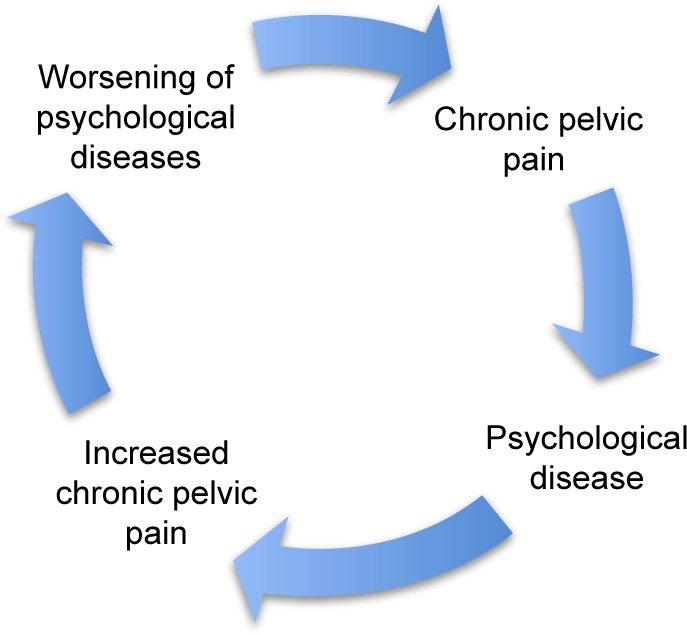Endometriosis and Mental Health: A Double Burden
by Nicholle Igbinyemi
The impact of endometriosis on mental health is profound. Studies have shown that individuals with endometriosis often report higher levels of anxiety, depression, and psychoticism compared to those without the condition. A significant contributing factor to this is the chronic pain associated with endometriosis, particularly Chronic Pelvic Pain (CPP), a nonmalignant pain perceived in pelvic areas which persists or recurs over a period of at least 6 months. Interestingly, the severity of pelvic pain does not always correlate with the stage of endometriosis, meaning even those with mild cases may experience intense pain while those with severe cases may suffer less. Research indicates that women with endometriosis-related pelvic pain report elevated levels of anxiety and depression and a lower quality of life compared to those without pain symptoms. The link between endometriosis and mental health distress is not born out of thin air. There are various factors that contribute to this link. Endometriosis can disrupt an individual's social life, professional endeavors, and relationships. When individuals are not able to show up fully in different areas of their lives, this can in turn affect their mental well-being.
The vicious circle of chronic pelvic pain and psychological diseases.
Copyright © 2017 Laganà et al. This work is published and licensed by Dove Medical Press Limited
It is important to note that in the above studies, participants had confirmed diagnosis of endometriosis. However, in reality, around 75% of individuals with endometriosis experience initial misdiagnosis, leading to them spending up to an average of 7 to 10 years in search of a correct diagnosis. During this period, individuals still endure the chronic pain, symptoms, and resulting mental health distress of living with a chronic condition; however, the argument can be made that during this period, an individual may experience even more mental health distress as a result of them living in uncertainty surrounding their condition and having to navigate a healthcare system that often ignores the concerns of women, especially Black women.
While the correlation between endometriosis and mental health distress is largely attributed to pain and the challenges in seeking adequate care, it's essential to recognize the double burden effect. The double burden effect can be described as the combined impact of living with endometriosis and living with a mental condition. For example, if an individual with endometriosis is also dealing with stress and depression, besides managing the chronic pain, they must also cope with mental health distress that may manifest in symptoms such as digestive disorders, fatigue, mind fog, lack of motivation, inability to focus amongst many other things. It is important to note that these physiological responses to stress and depression also have the ability to exacerbate an individual endometriosis symptoms. This can result in a feedback loop where the pain associated with endometriosis and mental health distress are continuously feeding off each other resulting in an overall decline in quality of life.
Given the reciprocal relationship between endometriosis and mental health, comprehensive healthcare that addresses both is crucial for those affected. Integrated care that combines medical treatment for endometriosis with mental health support can lead to better outcomes. It is also important for people living with endometriosis to give themselves grace and compassion because navigating this condition is no easy feat. Alongside professional mental health services, activities like mindfulness, adequate sleep, healthy habits, and social connection can contribute to mental health wellness.

